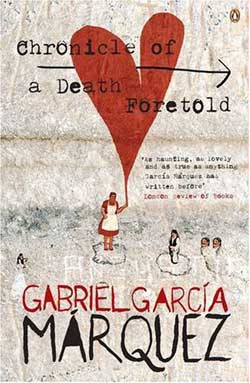The theme of honor and shame is central to Gabriel Garcia Marquez’s novel, Chronicles of a Death Foretold. The story is set in a small, conservative Colombian town, where traditional codes of honor hold great value. The murder of Santiago Nasar is motivated by a desire to restore the honor of the Vicario family, after their sister Angela was allegedly dishonored by Santiago. Throughout the novel, honor and shame are depicted as powerful forces that drive the characters’ actions, and ultimately lead to tragedy.
One of the ways in which the theme of honor and shame is depicted is through the concept of machismo. In the novel, machismo refers to the idea of male honor and dominance, and is portrayed as a destructive force that leads to violence and tragedy. The Vicario brothers, who murder Santiago, are motivated by a desire to restore their family’s honor after their sister’s supposed dishonor. They believe that killing Santiago is the only way to restore their family’s honor and prove their own manhood. Similarly, the town’s mayor, Colonel Lazaro Aponte, refuses to take action to prevent the murder because he is afraid of being seen as weak and unmanly.

The theme of honor and shame is also depicted through the treatment of women in the novel. Women are seen as the bearers of their family’s honor, and are expected to maintain their virginity until marriage. When Angela is found to be not a virgin on her wedding night, she is publicly shamed and rejected by her husband. Her brothers, in turn, feel that it is their duty to restore their family’s honor by killing Santiago. Women are portrayed as passive victims in the novel, whose honor is controlled by men. This is seen most clearly in the character of Angela, who is unable to control her own fate, and is instead subject to the whims of the men around her.
Another way in which the theme of honor and shame is depicted is through the use of symbols and rituals. In the novel, symbols such as the white linen sheets that Angela wears on her wedding night, and the bouquet of flowers that Santiago gives her, are imbued with great symbolic significance. They represent the purity and innocence that is associated with virginity, and the shame that comes with its loss. Similarly, rituals such as the wedding ceremony and the subsequent celebration are seen as opportunities to publicly display and reinforce the family’s honor. When Angela’s husband discovers that she is not a virgin, he publicly displays the white linen sheets as proof of her dishonor.
Ultimately, the theme of honor and shame in Chronicles of a Death Foretold is a critique of the societal norms and cultural values that lead to violence and tragedy. The novel depicts a society where the pursuit of honor and the avoidance of shame take precedence over basic human decency and compassion. The characters are unable to break free from the constraints of tradition and social expectation, and are trapped in a cycle of violence and revenge. The Vicario brothers’ actions are seen as futile and senseless, driven by a desire to restore a sense of honor that was lost long ago.
In conclusion, the theme of honor and shame is a central one in Chronicles of a Death Foretold. The novel critiques the societal norms and cultural values that lead to violence and tragedy, and depicts a society where the pursuit of honor and the avoidance of shame take precedence over basic human decency and compassion. The novel suggests that until these values are challenged and re-evaluated, the cycle of violence and revenge will continue.